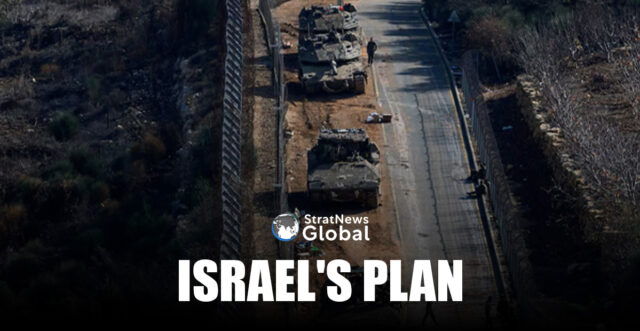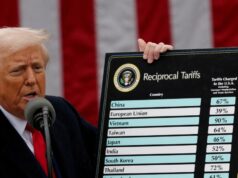
As Syria witnessed the fall of Bashar al-Assad and transfer of power to Islamist rebels group, Israel on Monday said it will carry out airstrikes on Syrian stores of advanced weaponry and keep a ‘limited’ troop presence on the ground, to head off any threat that could emerge in future.
Israel has watched the upheaval in Syria with a mixture of hope and concern as it weighs the consequences of one of the most significant strategic shifts in the Middle East in years.
While Assad’s fall wiped out a bastion from which Israel’s arch-foe Iran had exercised influence in the region, the lightning advance of a disparate group of rebel forces with roots in the Islamist ideology of Al Qaeda poses risks.
Defence Minister Israel Katz said the military would “destroy heavy strategic weapons throughout Syria, including surface-to-air missiles, air defence systems, surface-to-surface missiles, cruise missiles, long-range rockets, and coastal missiles”.
A senior Israeli official said airstrikes would persist in the coming days, while Foreign Minister Gideon Saar said Israel had no interest in interfering in internal Syrian affairs and was concerned only with defending its citizens.
“That’s why we attack strategic weapons systems like, for example, remaining chemical weapons or long-range missiles and rockets in order that they will not fall into the hands of extremists,” Saar told reporters in Jerusalem.
Still reeling from the Palestinian militant group Hamas’ attack in October 2023, Israel is also looking to head off any future threat from its neighbour.
Israeli forces had already cleared landmines and established new barriers on the frontier between the Israeli-occupied Golan Heights and a demilitarised strip bordering Syria in October.
Early on Sunday, the military said it had sent ground forces into the demilitarised zone, a 400-sq-km (155-sq-mile) buffer created by a 1974 Separation of Forces Agreement and overseen by the U.N. Disengagement Observer Force (UNDOF).
The military on Monday published photos of Israeli commandos in the Syrian Mount Hermon area.
Saar said the troop presence was strictly limited. “It’s basically near our borders, sometimes a few hundred metres, sometimes one mile or two miles,” he said. “It is a very limited and temporary step we took for security reasons.”
(With inputs from Reuters)
In a career spanning three decades and counting, Ramananda (Ram to his friends) has been the foreign editor of The Telegraph, Outlook Magazine and the New Indian Express. He helped set up rediff.com’s editorial operations in San Jose and New York, helmed sify.com, and was the founder editor of India.com.
His work has featured in national and international publications like the Al Jazeera Centre for Studies, Global Times and Ashahi Shimbun. But his one constant over all these years, he says, has been the attempt to understand rising India’s place in the world.
He can rustle up a mean salad, his oil-less pepper chicken is to die for, and all it takes is some beer and rhythm and blues to rock his soul.
Talk to him about foreign and strategic affairs, media, South Asia, China, and of course India.




